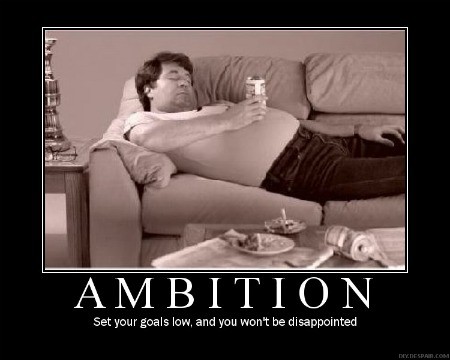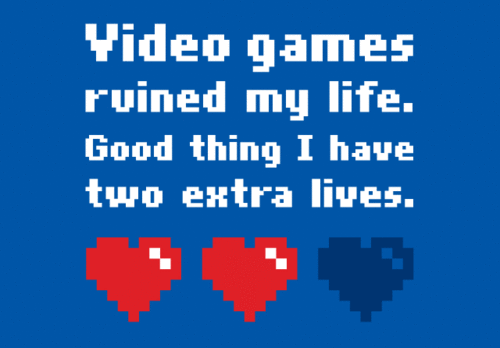
How to Quit Playing Video Games

Learning how to quit video games is without question one of the hardest obstacles to overcome when you first get involved in a journey of self-improvement. Yet it’s also one of the most important.
I think we can all agree that they are also a major cause as to why you lack the skills necessary to attract women, network, and live the life you want to live. Instead of the one where you feel stagnant procrastinating at home night after night.
When you have nothing else to do on a Friday night, what do you do? You play video games.
When you come home tired after working 9–5, what do you do? You play video games.
When you’re looking to just relax for a minute and kill some time, what do you do? You play video games.
And soon this turns into a major addiction, and one of the hardest ones to break.
Disclaimer: This article is for people who have a desire to quit playing games. If you aren’t looking to quit then this article is not for you.
Free Guide: The #1 question I get is what do I fill my time with? Download 60+ new hobby ideas including my top five and other tips.
The tragedy is that many of the people playing video games night after night are aware of this too! They want to quit but don’t know how. (If this is you, you’ve come to the right place.)
One night you decide you have had enough and you try to quit. Maybe you even type “How to quit playing video games” into Google.
What do the tips say? A bunch of crap that doesn’t work at all because the people who wrote the articles wrote what the obvious tips would be:
- Don’t quit playing them completely, just limit your time.
- Spend more time studying.
- Eat healthier and drink more water.
- Go to a friends house, or to the mall.
What the fuck? Would anybody actually do any of those? Seriously. These people are clueless.
People aren’t going to stop playing video games by studying more. The reason they are playing video games is to avoid studying! Going to a friends house seems like good advice, except their friends are likely also playing video games, so now you are just making the problem worse, and limiting the time you play never works at all.
Does anybody like hearing that predictable advice anyways? I don’t know if you’re like me but when I read that predictable advice it just pisses me off. Straight up. These people are clueless to the real problems.
An example of this is the common advice given to people that are overweight – specifically the ones who are overweight and could do something about it.
What’s the common advice you get when you’re overweight? “Eat healthier and run.” Does that work? Absolutely. But a major reason these people are overweight is because they’re lazy. (I know it’s not the only reason, but let’s be real here, it’s a major one.)
If someone is lazy are they really going to go running? Are you kidding me? I’m an athletic guy, I’m driven, and the amount of effort it takes me to go for a run is tremendous. If I were overweight running would be a huge challenge for me.
Again, eating healthy is good and all, but that takes effort too and changing your eating habits is not exactly an exciting proposition – which is why a ton of people don’t do it. So that advice sucks too.
The right advice is to find a solution to the actual problem: their laziness, lack of drive, lack of self-worth, lack of self-esteem. Figure out that problem and you have a better chance of getting that person on a treadmill. Make sense?

Moving on…
Now before I get into the nitty gritty of this article let me first prove to you that I am a credible source on this topic. I don’t want to be another one of those clueless people I talked about above giving advice on this topic when I have no idea what I’m talking about.
Why should you listen to me?
Growing up I played video games as much as I possibly could. It got to the point where I would refuse to even do any chores around the house because that would take time away from playing video games.
I didn’t play video games casually either; I played them to an extremely competitive level, competed in tournaments and ran one of my teams like you would run a business.
My video game career (I’m not kidding, I viewed it as a career) began playing the original version of Starcraft when it first came out. From here I moved onto Counterstrike 1.6 which ended up being the game I would play the most.
I competed competitively in Counterstrike 1.6, playing in both CAL and CEVO leagues. At one point I was an Admin for the CEVO league.
My CS 1.6 team would practice every day between 4-8 hours (as a team.) When we weren’t practicing, I would practice on my own. I took that game so seriously I actually took lessons for it from one of the best guys in the world.
To improve my play I would study game film. I did whatever I could to get better. I played competitive CS 1.6 for many years.
After my CS 1.6 career ended I started to play World of Warcraft. For the next year I played this game 16 hours a day, every day.
If I didn’t have better things to do I would login to my account and show everybody the total number of days played vs. the number of days I was active in the game. It would blow their mind. I’m not kidding: I played 16 hours a day every day for over a year.
I had the #1 ranked hunter on the server I played on and after transferring to a new server (one of the more popular ones) I was recruited by a top 10 guild in the world to be on their roster.
Before joining this guild I decided to quit the game. This was right around the time that I decided to make a few last ditch efforts to save my relationship (which didn’t work).
Shortly after I met some friends which kick started my journey into self-improvement and the life I live now. I started to play Dota for a few months before deciding to take my life more seriously.
I knew the absolute only way this was going to be possible was if I stopped playing video games all together so I decided that was exactly what I was going to do and in October 2007 I quit them cold mother fuckin’ turkey.
 I didn’t touch a video game at all for almost two whole years. Was I tempted to? Of course! There were days when I had a massive desire to go play but I had to stay committed to not touching any of them no matter what.
I didn’t touch a video game at all for almost two whole years. Was I tempted to? Of course! There were days when I had a massive desire to go play but I had to stay committed to not touching any of them no matter what.
If a friend invited me over to play, I would decline. If people at my house were playing, I would go do something else. It took a strong will but I was eventually able to break the habit and as time went on it became easier and easier. The temptation faded.
Which brings me to the first and absolute most important puzzle to quitting video games: You must have a firm commitment to not play them.
You can’t limit your time. You can’t use it as a reward. You must quit cold turkey, 110%. You must make that decision. You must make the decision not to touch them at all ever again. I’m not talking about making this decision like you make other decisions which you weren’t really serious about. I mean you seriously have to mean it.
If not you will end up playing them again and again wasting your days playing some stupid video game justifying it in a thousand different ways.
A firm commitment is absolutely crucial but it isn’t enough.
This is something I found out in September 2009 when I started to play them again.
I had just moved to Victoria, BC. I moved out there to get away from Calgary and to experience something new. It was also a challenge to myself to see if I could move to another city and make new friends. At least that’s what I told myself at the time, but the main reason (looking back) that I moved was in order to escape from the life I was living.
I had just moved into a new house with two roommates who I didn’t know very well.
A day or two after I moved in one of my roommates, Ben, and I began to discuss our previous involvement in competitive video games, specifically the game Starcraft. I mentioned how I took the game very seriously and was very good.
He joked about buying the game again so we could play. I told him not to do it because I wasn’t playing any games anymore.
Later that night as I was working away on my computer and he came home and placed Starcraft in front of me. He had gone out and bought it. He thought this was funny. I was laughing on the outside but inside I was pissed. I knew this was going to end poorly.
I gave in and played a few games with him where he absolutely crushed me.
I don’t think he was expecting me to react the way I did.
Humble in defeat I made the decision to do whatever it took to make sure I could crush him anytime I played him from here on out, without cheating of course.
For the next 5 months I played Starcraft 12-16 hours a day. I would spend my time studying strategy, watching film, and playing as much as I could. I pretty much did nothing else. I improved rapidly and as I began to get better Ben started to play more and more as well. By the end our games became extremely intense.
Why did I get so serious about Starcraft again?
The second and third pieces to the puzzle explain it perfectly: video games are a challenge.
Being challenged can be an extremely motivating factor for someone. The challenge of the game is one aspect to why you become as addicted as you do.
They also provide an avenue where you can see constant measurable growth.
Just look at two of the best and most addictive games out right now: World of Warcraft and Modern Warfare 2. In both games you level up (constant measurable growth). It doesn’t take a rocket scientist to see that leveling up is a very addicting aspect to the game.
After 5 months of doing nothing more than playing Starcraft all day long I moved back home to Calgary.
When I got back home, I still didn’t have much to do other than work and party (something which I wasn’t overly interested in at the time) so I started playing Modern Warfare 2. This went on for a few months before I ended up quitting games again and since then (March 2010) I haven’t touched any video games.
And I highly doubt I will ever again.
 Now there’s one last core piece to this puzzle.
Now there’s one last core piece to this puzzle.
On there own all the pieces I’ve talked about thus far are important and do a lot of damage independently, but this last piece is the real x-factor: all good games are social.
The social aspect of these games is what really draws you in. That’s why playing a non-multiplayer game is fun but only for a limited time. Eventually you get bored and do something else. But the games that keep you around for a long time are the ones that are social.
Think about World of Warcraft or Modern Warfare 2. These games added a major social aspect to each game and that is why they have millions of players worldwide, millions of players who play them for a long long time.
You no longer have a reason to go out and meet people if you can just log into a video game that is a ton of fun, let’s you escape from reality, let’s you see constant measurable growth, and continues to challenge you every time you play. When you are still interacting with people, staying home on a Friday night doesn’t look so bad now does it?
If you look at the best and most addicting games out there they all comprise these core pieces. They are challenging, but you can also see constant growth and improvement over time. They allow you to escape, even if only temporarily. They are social.
So now you’re thinking:
“Ok Cam, this all makes sense, I understand how these games are operating and the areas of my life they are filling, but how do I stop playing video games and start living my life!?”
Well other than having that firm commitment you need to fill all four of these areas with new activities.
But don’t forget you play video games because you enjoy them, they are fun, so you can’t fill any of these areas with things that you don’t enjoy!
You have to fill them with activities that you like, ones that you like a lot. You have to have fun doing these otherwise you will just want to go play video games again, because you aren’t getting the same fix that you were from them.
To recap what these areas are:
- A temporary escape
- Constant measurable growth
- A challenge
- Social
So let’s bounce some ideas around. What activities did I start doing to fill those voids allowing me to not need video games for that fix?
I started to work on my social skills. This worked out really well. But only because I took it very, very seriously. If I wasn’t out meeting new people, I was at home studying (reading articles, watching videos, talking with people about it.)
This is something I’ve noticed with a few different students of mine. A lot of them like to play video games. This is no surprise. There are some that have been successful in kicking that desire and others that have not.
The ones that have been successful are the ones that have actually gotten serious about improving their lives and since I’m going to assume that most people reading this have a full-time job (or go to school) they only have so much time in their day for a few things.
“Social Dynamics” obviously offers all 4 of those areas which is why taking it seriously works to get over your video game addiction. But it only works if you take it seriously. If you half-ass it, you won’t get the same results.
Social Dynamics is essentially a proactive approach to living the life you want. What’s your dream? (And when I say dream, I’m talking about a lifestyle – which includes a job, an awesome group of friends, a boyfriend/girlfriend you’re crazy about, passionate hobbies, a purpose.)
And that’s the exact reason why the students I’ve had that weren’t able to get over their addiction weren’t able to do it! They didn’t take this new endeavor seriously enough to fill those voids. So they would find themselves bored at home a lot, and when you are bored at home video games are an easy solution to that problem.
But what if you don’t want to take improving your social skills that seriously. What else could you do?
Well, anything you are actually passionate about will work.
If you want to learn how to play guitar do it! But remember playing guitar is missing one key piece: the social side. So instead of playing by yourself in your room all the time, play with a buddy a couple times a week. Start a band or something. That would make a big difference.
Any activity you enjoy will work! You just have to find something that you enjoy and take it seriously, whether that’s learning how to socialize, learning how to play guitar, or starting a side Internet marketing business (with a friend!).
You just need to make a firm commitment (110%, no half-assing it) and then make sure you fill all four of those voids. Do this and you’re golden!
If you have friends that just sit around all day playing video games… get new friends! It really isn’t that hard. Sure, sometimes that sucks but you need to remember that this is your life and if there’s anything you should take seriously, it’s your life!
You aren’t going to please everybody but if they aren’t down with it they aren’t worth it. Seriously. None of my friends sit around all day playing video games because we share other common interests. They all want to grow and develop other skills. I have friends that dance. Others that play in a band. Personally, I’m learning how to DJ.
You need to find some type of lifestyle activity that you love. Something you are passionate about. Find this and you’ll seriously never have another desire to play video games. Eventually your life will get to a point where you straight up just don’t even have time to think about playing video games.
I’m extremely busy and this causes me not to DJ as much as I want, so if I have any free time I do that! But I also don’t always do it by myself. I have a few friends that share that same passion so we hang out and do it.
DJing allows me to escape from life temporarily and to relax. It’s also a ton of fun, I see constant measurable growth and at the same time, it’s always challenging. See a pattern here? I’ve covered all four pieces!
Now I’m at the point where playing video games just seems completely ridiculous to me.
I hope this article helps you guys out. If you take it seriously and implement the principles I’ve talked about you will be able to do it. You will finally be able to quit playing video games once and for all, giving you the time you need to live the life you want to live.
—
You’re here because you want to quit playing video games.
And over the past four years I’ve worked with thousands of gamers just like you to overcome their gaming problem.
What I’ve learned is that after you read this article there is a difference between those who succeed in and those who do not.
It’s harsh but it’s true. Not everyone succeeds in overcoming their gaming problem.
But what I’ve learned over the past four years is that it all comes down to five simple steps.
The five next steps you need to take right now to succeed in overcoming your gaming problem.
And I’ve put them into an easy-to-read guide for you I call Respawn.
Free Guide: The #1 question I get is what do I fill my time with? Download 60+ new hobby ideas including my top five and other tips.
